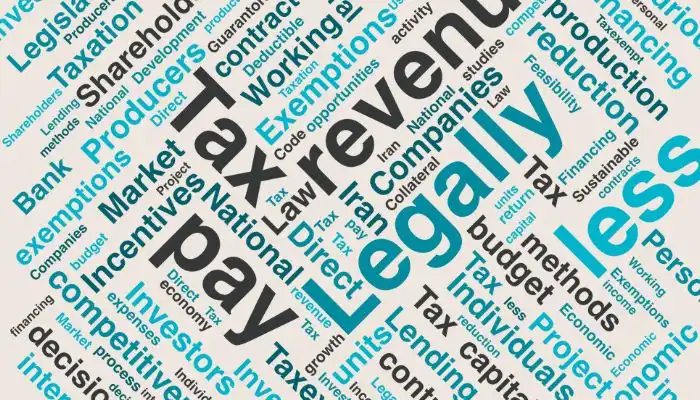Considering the projected tax revenue of 838 trillion rials in the 2023 national budget, the legal ways to pay less tax become increasingly valuable for every company and active individual in Iran. The smartest way to reduce taxes is to leverage the capacities, exemptions, and incentives provided by the Direct Tax Law. One of the main challenges faced by producers and investors has always been the burden of heavy and sometimes unjust taxes, which can negatively impact their competitiveness and capabilities in the market. Knowledge of legal tax reduction methods and utilizing tax benefits can offer new opportunities for producers and investors. This note examines one of the legal methods to reduce taxes, which involves individuals lending to production units (such as shareholders lending to their own companies). This method can help producers pay less tax without violating laws while also securing cash flow for project financing and working capital in the simplest way possible.
Section One: Less Tax for the Lender (Individuals and Legal Entities)
In our economic society, three common beliefs can significantly influence the trend of investment and production. The first belief is that only banks can lend money and that any non-bank lending falls under the category of usurious contracts. The second belief is that individuals can only deposit their money in banks and receive tax-exempt interest. The third belief is that all personal income is subject to taxation. These beliefs can lead to incorrect economic decisions. For instance, a production unit might seek a bank loan through a complex and lengthy bureaucratic process, while the owners and shareholders of the same unit have their money deposited in banks, earning interest. These individuals may not know that they themselves can lend to their own unit and benefit from the advantages.
In fact, the legislator, aiming to support producers and encourage investment in production units, has provided certain exceptions. According to these exceptions, individuals lending to production units is not considered usurious and is not subject to penalties. Instead, this action is supported, and tax exemptions are granted on the interest earned from these loans. All individuals, including persons, companies, and banks, can lend to production units, receive interest, and the interest received, up to the expected rate of return on participatory contracts approved by the Central Bank, is tax-exempt. Currently, receiving 23 percent interest per year from production companies is tax-exempt. This creates new opportunities for investment and development of production units and helps the national economy. Awareness of these laws is essential for individuals to legally benefit from these advantages.
Section Two: Less Tax for the Borrower (Production Unit)
Among economic actors and production units, there are two common beliefs that can significantly impact the production and investment process. The first belief is that loans or, in other words, facilities can only be obtained from banks licensed by the Central Bank. The second belief is that only interest expenses paid to banks are considered acceptable tax expenses, and the Tax Administration does not accept interest expenses related to loans from non-bank sources as tax-deductible expenses. These beliefs can impose limitations on the financing process of production units. If a production unit borrows from other individuals, whether shareholders or non-shareholders, it cannot account for the interest paid to this group of lenders in its tax calculations. As a result, production units have not sought to borrow from non-bank individuals and are forced to provide feasibility studies, acceptable collateral, and guarantors to the bank for obtaining loans.
This process is not only time-consuming but also involves significant costs and multiple fees. However, the legislator, aiming to support producers and encourage investment in production units, has made changes to the laws. These changes allow production units to borrow from other individuals, whether shareholders or non-shareholders, individuals or entities, and account for the interest paid to these individuals up to the expected rate of return on participatory contracts approved by the Central Bank, currently 23 percent per year, as tax-deductible expenses. This can create new financing opportunities for production units and help reduce the costs associated with obtaining loans from banks.
Conclusion
Exploiting the tax opportunities and lending options provided by the legislator for production units requires an understanding of the laws. These units can utilize the benefits of Article 138 of the Direct Tax Code and Circular No. 200/98/24 to reduce costs and simplify the financing process, leading to more sustainable growth. The main difference between someone who deposits their money in a bank and receives interest and someone who lends their money to a production unit and receives interest is that the principal amount lent to the production unit and its interest is not guaranteed by the Central Bank, unlike bank deposits. On the other hand, the interest from the production unit may be higher than bank deposit interest, with the advantage that there is no religious doubt, and the money owner benefits from real economic activity. Furthermore, lenders to production units must complete and submit a tax return once a year to benefit from the tax exemption on the interest received. If the lender is a shareholder or manager of the production unit, with their familiarity, they should not be concerned about the guarantee of the principal and interest, as their returns may exceed bank interest. The only notable point is that the tax exemption is applied only up to the rate set by the Central Bank, and any excess is not exempt.





